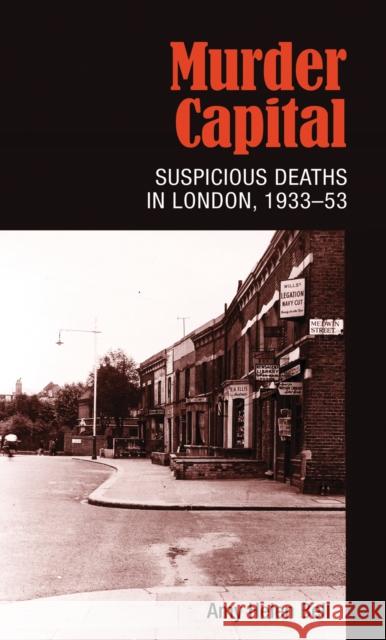Murder Capital: Suspicious Deaths in London, 1933-53 » książka
topmenu
Murder Capital: Suspicious Deaths in London, 1933-53
ISBN-13: 9780719091971 / Angielski / Twarda / 2014 / 256 str.
Murder capital is a historical study of suspicious and unexpected deaths whose circumstances required official investigation in mid-twentieth-century London. Setting the institutional ordering of the city against the hidden intimate spaces where the crimes occurred, the book charts the importance of urban space to the investigation, classification and public perceptions of violent crime.
The Second World War transformed violent crime in the capital, changing the pre-war pattern of killings committed within the family to one of murder committed by strangers in chance encounters, and creating derelict and abandoned bomb sites where bodies could be hidden. Using police case files, newspaper reports and crime scene photographs, this fascinating volume reveals intimate details of the daily lives of London's inhabitants as well as the familiar criminal landscapes of London's long history of crime and punishment. While many murders were widely represented in the contemporary media, Murder capital reveals categories of suspicious deaths - such as deaths from abortions and infanticides - which were never reported by the press or the Home Office, pointing to gaps in official crime statistics as well as historical understandings of crime in modern London. The individual stories revealed by this thoughtful examination tell us not only how people died, but how they lived, and the family tensions, unwanted pregnancies, sexual violence and chance encounters that led to their untimely ends. The book is a social, cultural and institutional history of London, and also makes a significant contribution to the fields of crime and forensic history.










